SUMMARY
This is AI generated summarization, which may have errors. For context, always refer to the full article.
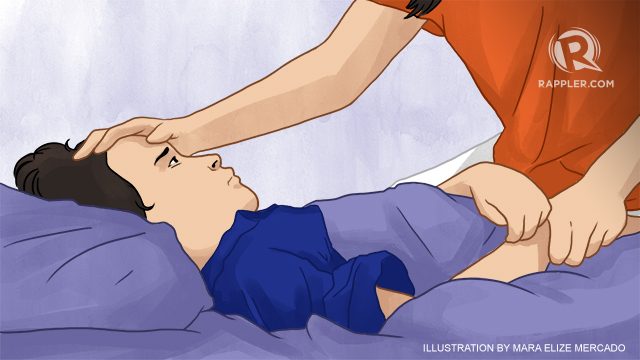
MANILA, Philippines — Moms can usually tell right away when their child is feeling under the weather, and they usually know exactly what to do to lift his or her spirits. A little medicine, a helping of his or her favorite dish, and some rest is usually all it takes to get your child up and playing again (READ: Fighting a child’s fever: A gameplan for moms), but what if your tried and tested techniques suddenly aren’t working?
If you’ve been treating your child’s fever but he or she doesn’t seem to be getting any better, it’s possible that the child has dengue, and not just flu. Pediatrician, Salvacion Gatchalian says, “The signs and symptoms associated with dengue are very nonspecific. That’s why you always rule out if this could be a systemic viral infection.”
Dengue fever is rampant during the rainy season so be extra cautious this time of the year (READ: How to dengue proof yourself and your home). If your child is suffering from a fever you can’t seem to break, it might be dengue you’re dealing with.
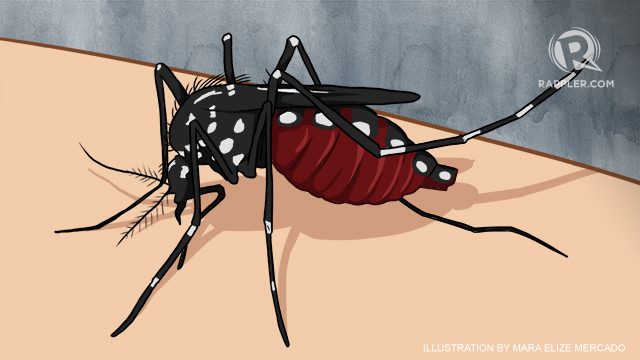
What is dengue fever?
Dengue is contracted when a mosquito that has one of four dengue viruses bites a person. It cannot be directly contracted from another person.
Dengue fever can go from mild to severe, having a wide spectrum of symptoms like fever, rashes and joint pains. Bleeding in the nose and gums may also happen if the dengue develops into more sever forms like dengue shock syndrome and dengue hemorrhagic fever (DHF).
Those with a weakened immune system or ones who have already had dengue have a higher risk of developing dengue hemorrhagic fever but the good news is that usually, younger children only experience milder cases.
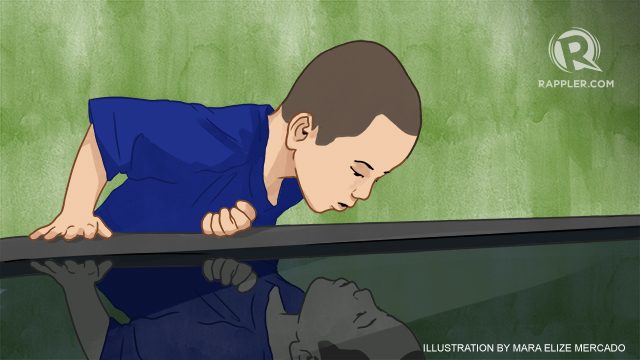
Try to back track
To figure out if it’s dengue you’re dealing with, think back and try to remember if your child could have been exposed to mosquitoes in the past five to seven days. Maybe he or she went on a school camping trip or has been playing by a fountain at the nearby park? Dengue mosquitoes abound in stagnant water so any wet area could be a possible breeding ground. If you find out that your child has indeed been hanging around areas like these, there’s a higher chance it is dengue fever that has been contracted.
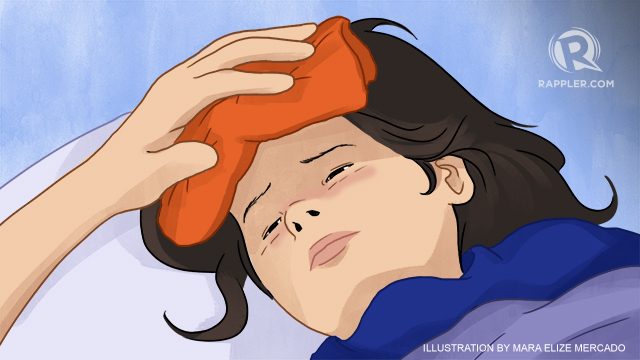
How is your child feeling?
All cases of dengue have fever as a symptom but if your child’s temperature fluctuates from high to low, this would be an even bigger indication. Other signs to watch out for are headaches, pain behind the eyes, a sore throat, abdominal pain, and nausea. Check and see too if your little one is looking flushed. If this does not usually happen when he or she has the flu, it could be because of dengue.
Treat these symptoms like you would any type of virus but Dr. Gatchalian urges mothers to keep in mind that if their child does not respond to medication in the first 48 hours, it is time to head for the hospital.
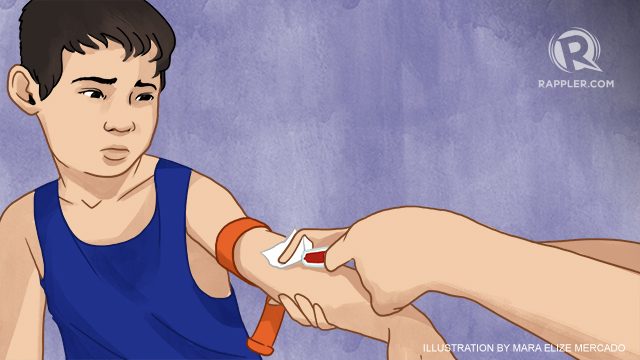
Visiting a doctor
If you suspect that your child has dengue, the best thing to do is to visit a doctor.
Your physician may hold tests like the tourniquet test wherein your child’s blood pressure is taken with the cuff inflated for about five minutes, they will then count how many petechiae or red spots there are on the skin. If there are 10 or more per 1 square inch, this is a sign of dengue. But this test is not 100% accurate so they usually consult a CBC or complete blood count as well.
You can never be too sure when only relying on symptoms so these tests will help determine the proper actions to take for your child to get better.
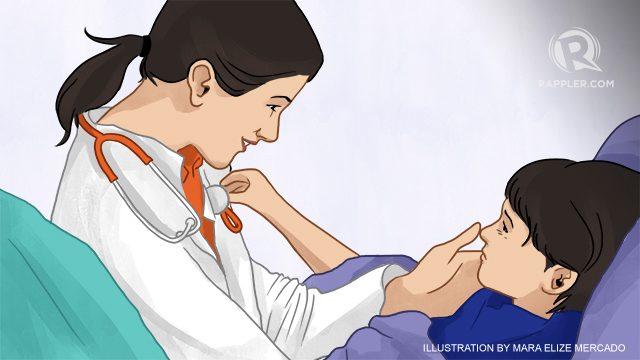
Proper treatment
The treatment for dengue varies depending on which form your child is experiencing. While the more serious ones could lead to hospitalization for easy monitoring of your child’s platelet count and hydration, milder forms are much simpler to treat. Just like a regular flu, your child’s condition can improve with constant water intake and by taking an antipyretic like paracetamol. Since it could increase the chances or worsen bleeding, avoid any medicine with aspirin or ibuprofen.
Dengue fever is easier to treat when caught in its earlier stages so if you suspect that your child has contracted the virus, take note of these signs, visit your pediatrician, and be one step ahead. — Rappler.com
Be a #GoGinhawa mom and relieve your child of fever and pain with the help of The Paracetamol (Calpol®). Its variants of differing strengths are especially developed for children of different ages. It’s available in 2 yummy flavors kids love: strawberry for children 2-6 yrs., and orange for Infant drops and 6yrs+.
Add a comment
How does this make you feel?
There are no comments yet. Add your comment to start the conversation.